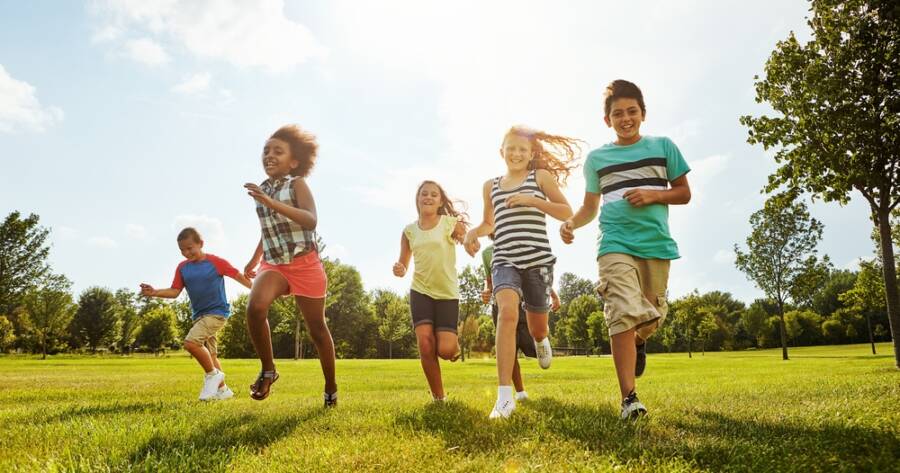Fresh air and open spaces offer children far more than a chance to burn energy. Outdoor play supports healthy development, nurtures imagination, and strengthens emotional well-being. Whether it’s a neighborhood park, a backyard, or a local hiking trail, time outside fuels curiosity and fosters lifelong habits of movement and exploration. By encouraging regular outdoor activity, families give children opportunities to grow stronger, think creatively, and build lasting connections with the natural world.
Boosting Physical Health and Strength
Outdoor play naturally promotes vigorous movement like running, climbing, jumping, and balancing. All of which build muscle strength and coordination. These activities improve motor skills, enhance flexibility, and encourage an active lifestyle that can lower the risk of childhood obesity. Sunlight exposure also helps the body produce vitamin D, which supports strong bones and a healthy immune system.
Regular outdoor time creates habits that last into adulthood. Kids who enjoy active play early are more likely to embrace exercise later in life, establishing a foundation for lifelong fitness and overall well-being.
Supporting Mental Health and Mood
Spending time outside can reduce stress and improve emotional balance. Nature provides a calming backdrop that lowers cortisol levels, helping children feel more relaxed and focused. Fresh air and unstructured play stimulate the senses and elevate mood, decreasing feelings of anxiety or irritability.
Outdoor activity also supports better sleep, which is critical for concentration and learning. A day of movement and natural light helps reset internal clocks, leading to more restful nights and brighter mornings.
Limiting Screen Time Naturally
Outdoor play provides a healthy counterbalance to digital entertainment. Scheduling daily time outdoors places natural limits on screen use while keeping kids engaged in the real world. Running, biking, or exploring encourages active participation instead of passive scrolling.
By offering exciting alternatives—like scavenger hunts or neighborhood games—parents can reduce the pull of TVs, tablets, and phones. Less recreational screen time helps prevent sedentary habits and encourages stronger social and physical development.
Building Social Skills and Friendships
Playing outside encourages cooperation, problem-solving, and communication. Whether it’s organizing a game of tag, building forts, or inventing imaginary worlds, children practice teamwork and learn how to negotiate rules and share space.
These interactions develop empathy and conflict-resolution skills that carry into school and future relationships. Outdoor settings also introduce children to a wider range of peers, creating opportunities to build friendships beyond the classroom.
Inspiring Imagination and Cognitive Growth
Unstructured outdoor play invites creativity. Trees become castles, sticks transform into magic wands, and rocks inspire scientific curiosity. Such imaginative activities strengthen critical thinking and decision-making, helping kids learn to adapt and experiment.
Time in nature also nurtures a sense of wonder about the environment. Observing plants, insects, and seasonal changes sparks questions and fuels early interest in science, encouraging a lifelong love of learning and discovery.
Connecting with Nature and Community
Spending time outdoors fosters appreciation for the environment and local surroundings. Children who regularly explore parks, gardens, or neighborhood trails develop a sense of stewardship and respect for nature.
Families can make outdoor play part of their routine by visiting nearby green spaces, joining community clean-up events, or starting a small backyard garden. These experiences strengthen family bonds while instilling values of environmental care and civic engagement.
Nurturing Healthy, Happy Futures
Outdoor play is far more than a pastime. It’s an essential ingredient in childhood development! From building strong bodies and resilient minds to cultivating social skills and environmental awareness, time outside offers lasting rewards.
Encouraging regular outdoor activity gives children a natural way to stay active, balanced, and curious. By prioritizing fresh air and open spaces, families help children grow into confident, healthy individuals who value both wellness and the world around them.

